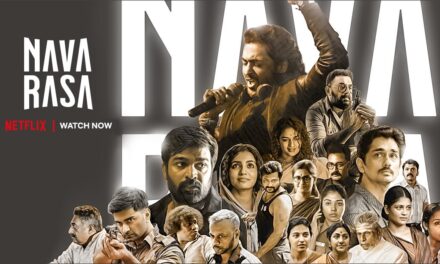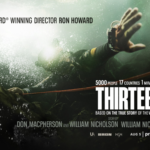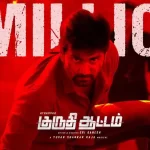Director: JJ Fredrick
Cast: Jyothika, Parthiepan, Bhagyaraj, Thiagarajan
Ponmagal Vandhal, the first mainstream Tamil film to release directly on OTT (Amazon Prime) opens with a bang. Quite literally. We hear gunshots fired in a tranquil, scenic area near Ooty and thanks to some fortuitous video footage, it becomes clear that the proponent of this act that killed two young men was a woman named Jothi.
Further investigation purports that she is in fact a ‘North Indian’ child abductor and psycho killer. More corpses are dug up. She is apprehended by the cops. She tries to flee, but is shot dead in the police encounter that follows. Neat job, case closed. But fast forward fifteen years, and this case is now mysteriously petitioned to be re-opened by ‘Petition’ Pethuraj (Bhagyaraj), an activist. Him and his daughter Venba (Jyothika), a rookie lawyer believe that this bygone case never received a fair trial and a re-examination is in order.
I have to admit, I found this initial set up quite interesting. On one hand, a promising courtroom drama with a typical underdog trope was brewing (this genre is a personal favourite of mine) and on the other, this had all makings of a riveting crime thriller. To add to the conflict, the character of Rajarathinam, a charismatic senior lawyer played ingeniously by Parthiepan is also added to the mix to face off with Venba.
Sadly, the first cracks in the script start to appear once the courtroom scenes commence. For a courtroom drama to succeed, two things are extremely important. One, a watertight plot and back story that can unravel logically and second, the judicious use of emotional and sentimental notes to ensure the tempo doesn’t slack.
In Pongagal Vandhal, I found gaping logical loopholes in the plot right from the off. To ensure I don’t reveal spoilers, I won’t be going into too many details. But sample this-how do you even begin to explain a woman on the run, who is also carrying an injured child nonchalantly fighting off two perfectly fit and armed young men? Then, there is also this curious case of Venba not presenting a key witness in court until it is too late and surprise, he ends up in the morgue just before his appointed court date! Like I said, I’m not going to present the full list of such instances here but there are just far too many.
Coming to the emotional and social notes, the script unsurprisingly includes a generous recital around violence against women and women empowerment in general. This is no doubt a topic of high contemporary relevance and what better medium than cinema to keep the conversation and awareness going.
Take a film like Section 375 for example, that minutely scrutinized the legal definition of consent and was also loosely inspired by the #MeToo movement. That film, also led by a female star (Richa Chadda) was beautifully organic in the way it blended this social messaging with a terrific plot-line.
In Ponmagal Vandhal however, these emotional and social notes just feel intrusive, jarring and cliched. Some of the lines are in fact are borderline ridiculous. Sample this. When an elderly witness on the stand refers to Venba as ‘Amma’, a socially accepted way to respectfully address women, she remarks that such language wouldn’t be tolerated in a courtroom. She goes on to ask if she could address him likewise with ‘Va da’ and ‘Po da’. Such dialogues frankly sounded more absurd than empowering.
The clichés don’t stop. They keep hitting you. We see overly contrived close up shots of folks suddenly tearing up in the courtroom (after another one of Venba’s emotional dialogue sets). We see interns in the courtroom starting a social media storm with viral hashtags. We see arbitrary montages of the general public voicing their newfound opinions on this case. All these scenes are just shoehorned into the script as if to be ticked off from some proverbial checklist and do not carry any semblance of real emotional weight or depth. The final nail is how the courtroom sequence climaxes. A key suspect is shown to inexplicably lose his poise and confess to his crime in a fit of rage in the open courtroom. This is apparently brought about by an age old lawyer trick and is nothing we haven’t seen before in cinema, as with most other devices in this film.
Okay, there is one twist right at the end. The bare idea here does sound interesting. Unfortunately, it does little to save the film and is simply a case of too little too late. The only real saving grace in the film is Parthiepan, who radiates swagger and coolth in every frame and has a terrific vibe about him throughout. ‘Kiddish ah iruku’, he retorts in response to one of Venba’s many long drawn arguments in court. Sadly, this phrase just about describes this film as well in a nutshell.
Overall rating: 1.5/5







